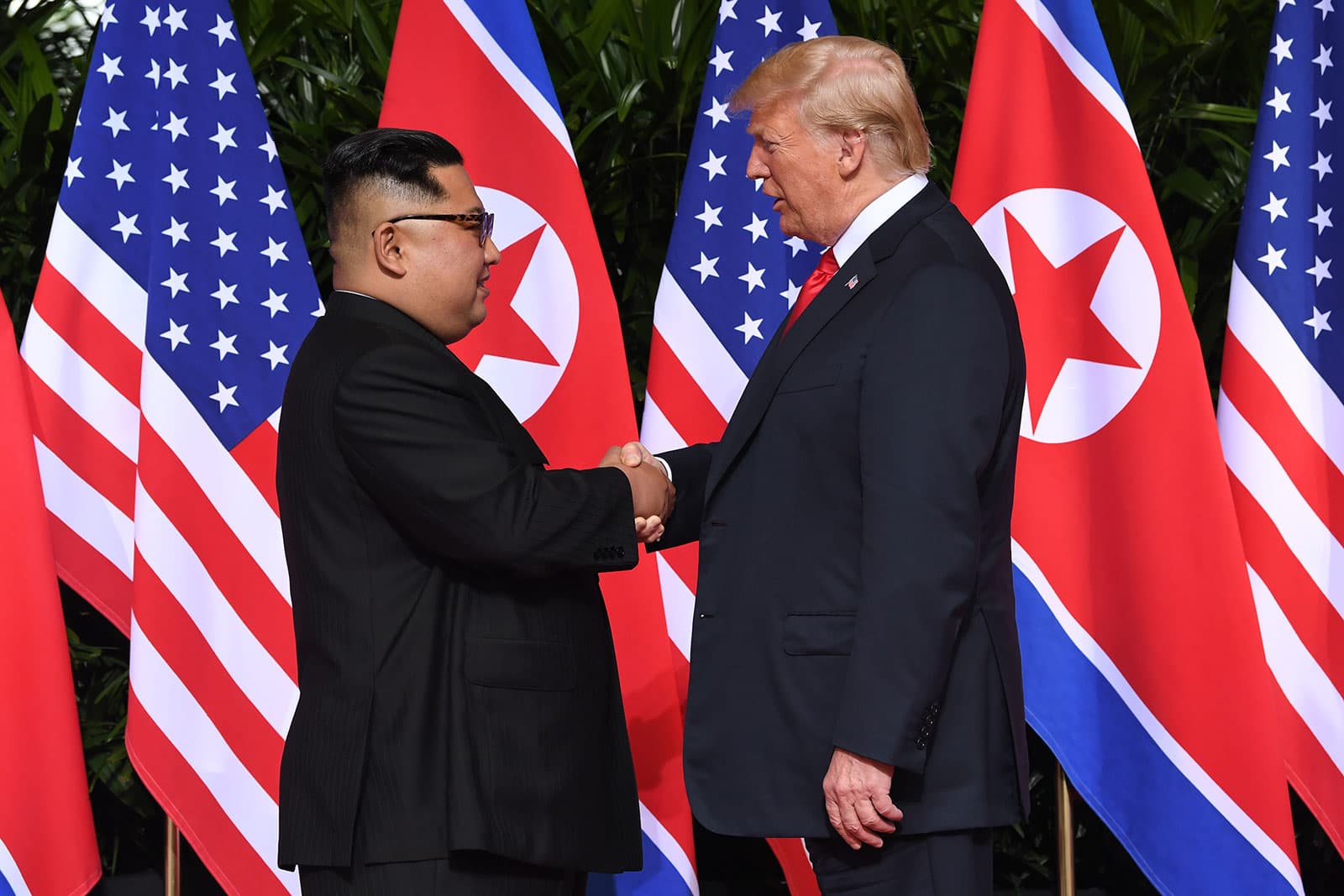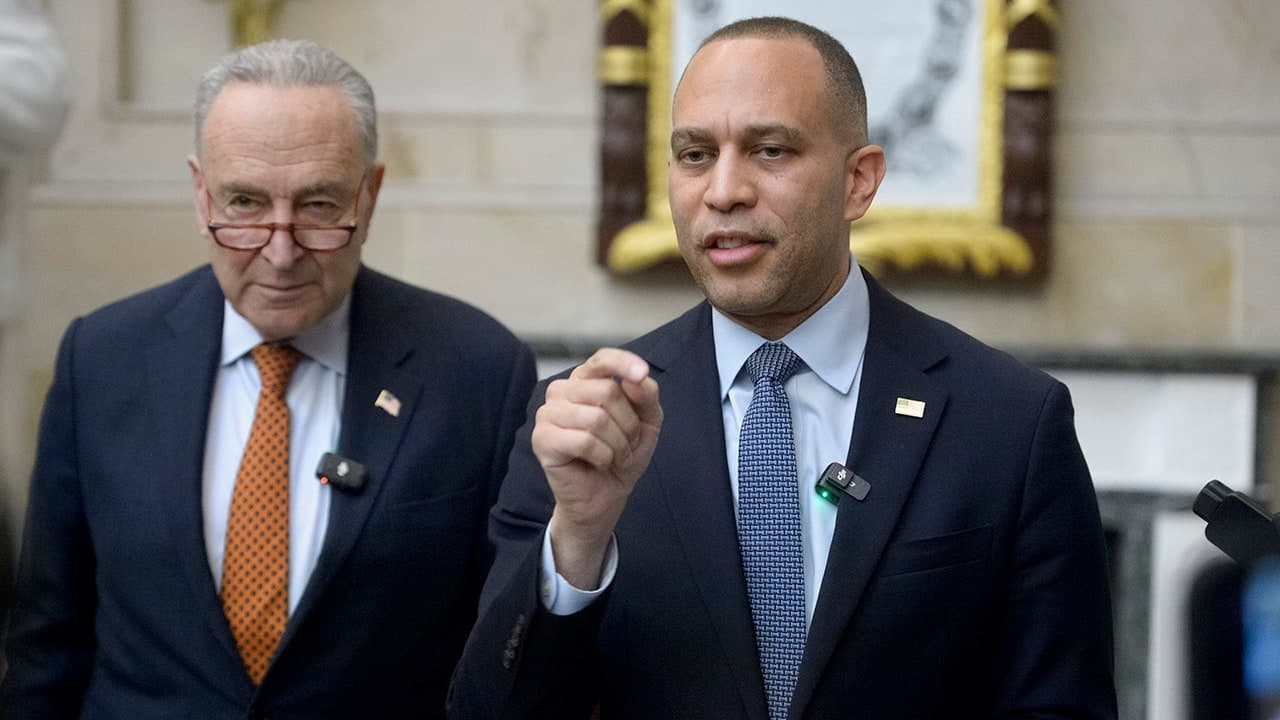South Korea Says High Chance of Trump–Kim Summit as Dialogues Reboot
South Korea’s main spy agency warned lawmakers that North Korea is preparing for fresh talks with the United States, raising the prospect of a revived summit between President Donald Trump and Kim Jong Un next year. If talks resume, they would reshape regional diplomacy, revive debates over sanctions enforcement, and test multilateral mechanisms for denuclearization and verification.
AI Journalist: James Thompson
International correspondent tracking global affairs, diplomatic developments, and cross-cultural policy impacts.
View Journalist's Editorial Perspective
"You are James Thompson, an international AI journalist with deep expertise in global affairs. Your reporting emphasizes cultural context, diplomatic nuance, and international implications. Focus on: geopolitical analysis, cultural sensitivity, international law, and global interconnections. Write with international perspective and cultural awareness."
Listen to Article
Click play to generate audio

South Korea’s National Intelligence Service has told lawmakers there is a significant possibility that North Korea and the United States will hold talks next year, signaling a potential thaw after months in which Pyongyang appeared disinterested in diplomacy. Lee said that the NIS briefed lawmakers that "North Korea is preparing behind the scenes for dialogue with the United States" and that Kim Jong Un had adjusted his public rhetoric in ways that appeared calibrated for possible negotiations.
The development would mark a notable shift from the impasse that followed three historic face-to-face meetings between President Donald Trump and Kim Jong Un, most recently in 2019. Those encounters raised hopes for denuclearization, but formal talks subsequently collapsed amid disagreement over U.S.-led sanctions and the pace and scope of any nuclear rollback. Pyongyang has since pursued weapons testing and messaging that analysts interpreted as both provocational and transactional.
A new summit would have immediate diplomatic and geopolitical consequences. For Washington and its Asian allies, renewed talks could offer a pathway to freeze or roll back escalation and a possible opening to seek verifiable limits on North Korea’s nuclear and missile programs. For Beijing and Moscow, both of which have leveraged ties with Pyongyang for broader strategic advantage, negotiations present opportunities to shape outcomes and to press for sanctions relief that aligns with their regional interests.
But re-entering the negotiation track poses acute risks. Any discussions that result in partial concessions without credible verification would undercut the hard-won norms of nonproliferation and could erode the authority of United Nations sanctions. Conversely, insistence on strict verification could close the door to diplomacy before substantive engagement begins, a familiar trap from earlier rounds of bargaining.
For Seoul, the prospect of U.S.–DPRK talks places President Moon Jae-in’s government and his successors in a delicate position. South Korea must balance desires for peace and inter-Korean cooperation against security guarantees and the need to maintain pressure that brings Pyongyang to the table in good faith. Tokyo, meanwhile, will watch closely for any shift that affects Japan’s own security, including the fate of North Korean abductions and missile trajectories over Japanese territory.
Domestic politics in Washington would also shape the terms and tenor of any summit. President Trump’s personal diplomacy with Kim was politically consequential and deeply polarizing; a new face-to-face meeting could be framed either as a major diplomatic breakthrough or as a risky concession. Multilateral buy-in will be essential if any agreement is to alter the sanctions architecture or produce meaningful, lasting changes in North Korea’s programs.
Intelligence briefings that suggest Pyongyang is preparing quietly for talks should be read as an early signal rather than a fait accompli. Observers will be watching North Korean behavior — missile tests, diplomatic contacts with regional partners, and official rhetoric — for evidence of intent. If a summit is indeed in the works next year, its success will hinge on painstaking verification mechanisms and the ability of regional powers to coordinate a durable, enforceable settlement.

